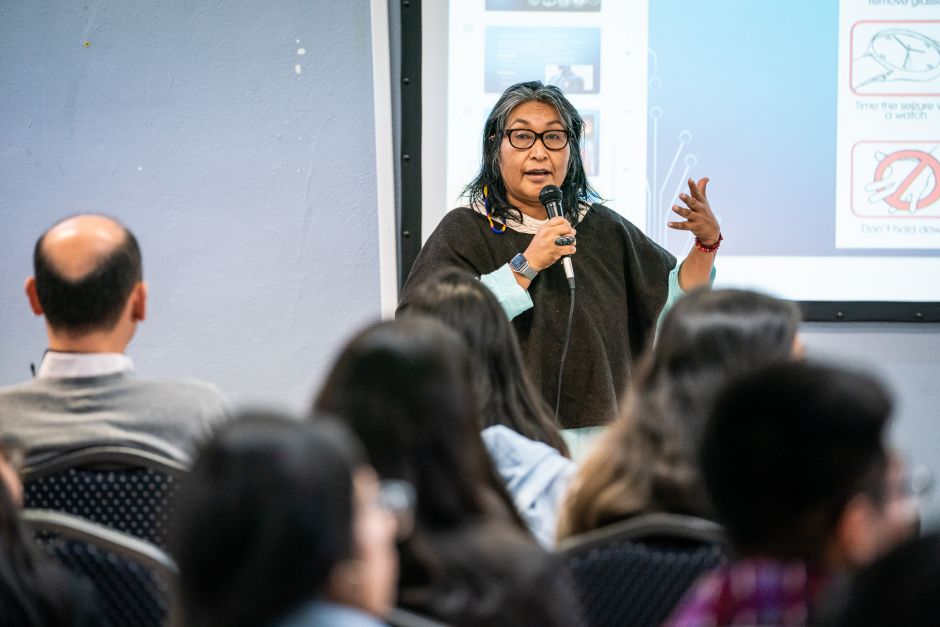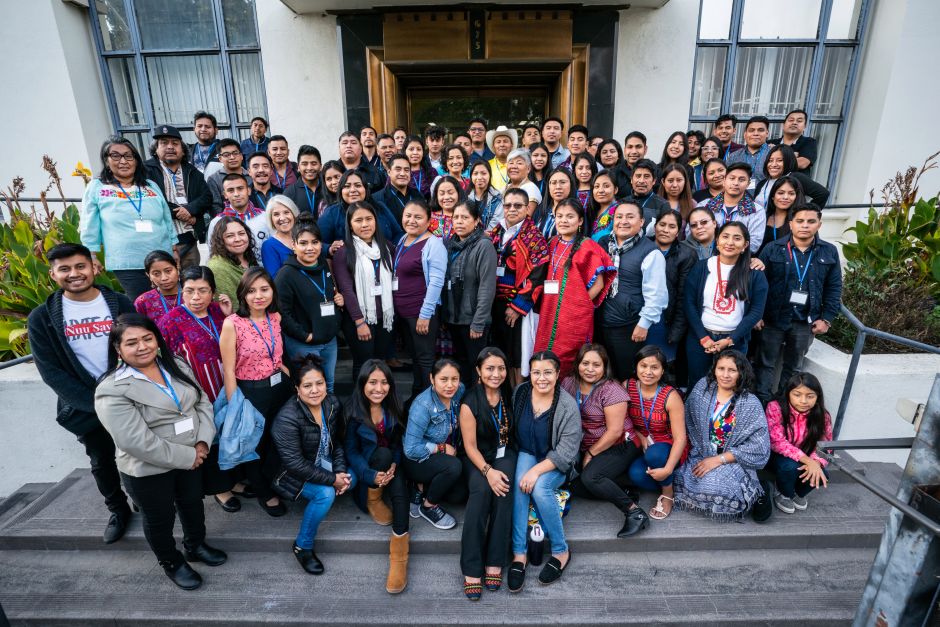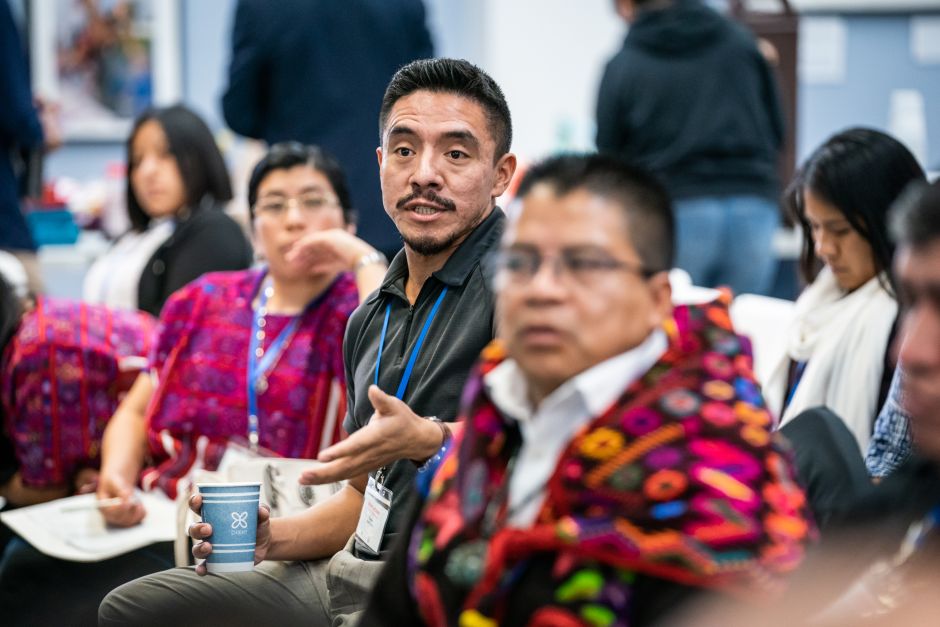Los Angeles Police can now communicate with indigenous people who do not speak Spanish or English
In 2010 the death of a Guatemalan indigenous man whose native language was K’iche caused frustration among the community since the main problem was that there was no communication.
Authorities revealed that Manuel Jaminez Xum, 37, was intoxicated and threatening pedestrians with a razor in the Westlake / Pico Union area. When the police officers arrived they asked him to release the knife — in English and Spanish. Xum did not force the agents to shoot him and kill him at the scene.
Further research revealed that Xum only spoke K’iche an indigenous language of Guatemala.
Odilia Romero, interpreter of the Zapotec language, said that a group of activists who were already organizing years ago decided to bring this important issue to the table.
"We decided to start giving cultural information workshops for the police," said Romero, who is part of the Indigenous Front of Binational Organizations (FIOB).
Romero said that with this training the police will already know how to respond in these cases. The community meetings finally united law enforcement with the community again and they both agreed that they would work with FIOB interpreters when necessary.

Alfred Labrada, commander of the LAPD South Bureau, recalled the three days after Xum's death when the community turned to the streets in protest. But he said that over time they have managed to amend their trust and constantly work with community organizations.
He said that for law enforcement officers not speaking the indigenous language is also very frustrating.
"Officers want to receive the information immediately, for example, if someone committed a crime we want to find the culprit quickly," Labrada said. "But if we have no way of receiving that information, we cannot do much."
Since then at least a dozen community forums have been held so that the police know the communities and their culture that they represent and protect.
Labrada said that in one of those meetings the idea was presented that the police would carry a pocket card identifying the eight most prominent indigenous languages in Los Angeles. Among them is the zapoteco, mixe, chianteco and mixteco.
"The card has four Guatemalan and four Mexican languages," Labrada said. "There they can underline which language they speak and so we can contact an interpreter so they can translate the information as if they were victims of crime or something similar."
Conference of interpreters of indigenous languages
On December 14 and 15, the conference of interpreters was held where one of the main topics was the understanding of the different languages in the United States. The police's collaboration with the indigenous community was also discussed.
Romero said they currently feel that the partnership between the police and the communities is being a success.
"Now people can already have an interpreter by their side," Romero said.
One of the guests at the conference was the linguist and writer Yasnaya Aguilar, of Oaxaca origin, who said that the challenges of indigenous people range from technical matters to understanding cultural differences.
Aguilar said Oaxaca does not differ much from what happens in Los Angeles with the police when they do not understand indigenous languages. She said the problem Xum faced is also seen in Oaxaca and other states of the Aztec country.
"And sometimes they make it seem that the problem is ours, that for not speaking Spanish or English we have a problem and the monolingualism of those who speak only Spanish or only English is not seen as a problem," Aguilar said. "I think the sources should be looked at from both sides."

Information card in 2020
Commander Labrada said that interestingly through the forums they themselves have found that some members of the police are also from indigenous communities.
"We speak with an officer from Yucatan (Mexico) and he speaks a language of that culture," Labrada said.
He said that these forums and constant communication with the community has helped them a lot to know how to respond in similar cases.
"After that incident we have faced others, not so serious, but for example where officers have to contact someone to translate that victim."
The card will be shared throughout the LAPD, from Westlake / Pico Union which is the area with a predominant number of indigenous people from southern Mexico and Central America, as in the south and east of Los Angeles, until reaching the San Fernando Valley .
The cards will begin to be used from January 2020. Both the police and the community will have access to the cards to load in their pockets.






